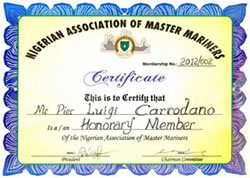‘Capt’ P L Carrodano
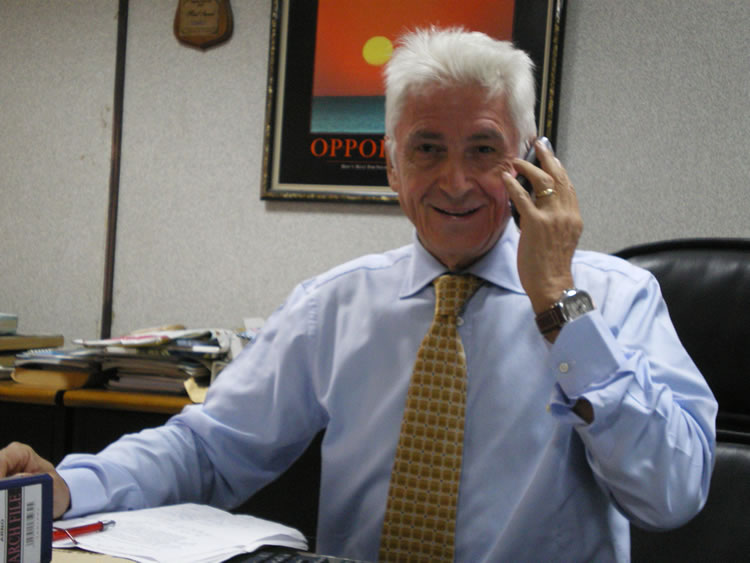
Click on the Play button to listen to ‘Capt’ Carrodano’s interview.
Highlights of his interview
Mr. Carrodano was conferred with the title of “Captain” by the Nigerian Association of Master Mariners in 2012, in recognition of his expertise and experience in shipping management and maritime trade.
Interview highlights:
Introduced himself as the Group Managing Director of NAL-Comet Group which comprises nine companies in different sectors of the economy, with two, Nigeria-America Line (NAL) and Comet Shipping Agencies, focused on maritime trade; introduced the two companies as well; arrived Nigeria in 1973 when the Nigerian National Shipping Line (NNSL) was still young and he had the chance to follow the progress of the line and to interact in many capacities with it; NNSL had good carrying capacity and many ships and was well known abroad; how he came to Nigeria in 1973 to pursue diverse interests and was employed in Italy by Panalpina World Transport Nigeria Ltd where he became a manager and was promoted to Deputy Director; in 1984 he joined General T Y Danjuma’s organization as the General Manager of Nigeria-America Line (NAL); General Danjuma personally introduced him to the MD of NNSL, Gerald Chidi; recalled his interactions with NNSL and its staff members, especially Mr. Gerald Chidi, who he felt displayed a high degree of professionalism in managing the NNSL; learnt a few things from Chidi as well and noted that he was always acting in the best interest of the company, such as intervening in the unhealthy frictions between the managers during the times when cargoes allocated to the company had to be transferred to other lines because NNSL could not lift them; also remembered Col. Lawan Gwadabe with whom he made a trip to Brazil as part of the Nigeria-Brazil Freight Conference during the days of Counter Trade in 1986; mentioned the era when Dr. B. U. Ekong was made the first Director-General of National Maritime Authority (NMA) and also Mr. Adebisi Akinfie, a former staff of the NNSL who was seconded to the NMA as the successor to Dr. Ekong in the capacity of Acting Director-General; the issue of whether the payment of address commission to NNSL for cargoes it ‘sold’ to other shipping lines was in order and equitable; the way such commissions or retrocession fees worked and the situation with NNSL’s incapacity to lift its allocated cargoes; the few occasions when he was personally involved in such transactions and how NNSL got ‘fantastic commissions’ under the management of Mr. Chidi; details of the cargo destined to Nigeria from land-locked Austria which must pass through Italy and two Italian carriers got into ‘a very big fight’ to get the cargo; the role he (Carrodano) played as the agent of Messina Line which succeeded in clinching the cargo against keen competition from the other line; [Interjection from Dr. Chilaka to explain how Chidi was retired because of the NNSL carriage of some Nigerian Railways cargo which was contested by Hold Trade Nigeria Ltd and subsequent face-off between Chidi and the Federal Ministry of Transport over the latter’s order that NNSL transfer the freight earned to Hold Trade as compensation which Chidi refused to do]; his meetings with NNSL officers at NMA; NAL’s three-time charter of Mv River Mada for voyages to Brazil; his comments about the suitability of NNSL vessels being combo, and how they suited the nature of the cargoes from Brazil at that time; the details of Nigeria’s Counter trade with Brazil for which NAL provided shipping; the South-South Cooperation which boosted the Counter Trade; why Brazil was favoured by many countries as Counter Trade partner; how he witnessed the setting up of the NMA; the high hopes of Nigerians about the coming of the NMA; his interactions with Dr. Ekong the first D-G, especially during trips to Rio de Janeiro for Nigeria-Brazil Freight Conference meetings; two major shipping lines in Brazil, Lloyd Braziliero and Global Transportiers, and the good cooperation they had; the wide acceptance of NNSL even before the setup of the NMA, especially with the support role played by the Nigerline UK as cargo consolidators; attributed the nose-dive in NNSL’s fortune to have begun with the disengagement of the foreign partners in Nigerline UK; the advantages of NNSL, including the seafarer training of many master mariners; his attempts to help some Nigerian cadets get onboard foreign ships and the problem of insurance cited by foreign shipping lines for not taking Nigerian cadets; the way out of such problems through partnership between Nigerian shipping lines and foreign shipping lines; the first signs he noticed about NNSL’s operating difficulties, such as not servicing its debts and that NNSL ships on arrival did not always proceed to the berths which were vacant but would wait at anchor for a long time; the problem of cargo allocation for Nigerian shipping lines and how they went about it; the subtle resistance to the cargo allocation programme from some foreign shippers; suggested that commercial cargo marketing techniques are better than allocated cargoes and that Nigerian shipping lines should enter space charter arrangements with vibrant foreign shipping lines instead of relying only on positioning full ships; NAL used space charter agreements and did not suffer much from cargo scarcity; NAL turned down many cargoes allocated or “sold” to it whenever it was not in the best capacity to lift such cargoes unlike some indigenous lines which made a business of selling such allocations; felt that such corruption with the scheme was the reason for its suspension; the difficulties an indigenous shipping line would have now to establish and run against the foreign competitors compared to the 1980s and 1990s; the dynamics of mega shipping today which forecloses participants from Third World or poor nations; mega carriers now acquire terminals, railways and logistics chains which are not easily affordable for starters; foreign shipping lines would only have interest in collaborating with indigenous shipping lines if it advances their profitable operations; only specifically-targeted laws that make indigenous participation mandatory in order to lift certain cargoes can initiate such collaboration; examples of such cargoes, government project cargoes, etc; advantages of such collaboration, including the recruitment of some Nigerian managers and cadets onboard the vessels; because of such collaboration, then the Nigerian line would have the capacity to acquire its own vessels, together with the ongoing backup of the partner foreign shipping line; this will also conserve foreign currency; this is his suggestion of the best way for Nigeria to re-enter the ocean shipping industry; the possible administrative procedures to achieve this option; discussed the essence of a suitable law to guide such transactions to give confidence to the foreign shipping lines and whether the 2007 Merchant Shipping Act and the Law on National Content can suffice; suggested, for starters, concentration on one route for example, North Europe, Mediterranean, North America, etc; the need for leadership and determination for Nigeria to re-emerge as an active maritime nation; agreed with those who argued that NNSL should not have been liquidated; the losses imposed by the liquidation; the likely reasons for the failure of the private sector shipping lines, bad economy; the continuing difficulties for small shipping lines to operate successfully these days; the requirements to operate competitively in West Africa sub-region by having branches in Ghana, Ivory Coast, etc; the example of Bollore Group which controls terminals, railways, warehousing and other logistics services in Togo, Ivory Coast and other places for better competition; a comparison of the strong competition amongst Bollores, MSC, Maersk, APMT in West Africa; final words about how to run a ‘lean and mean’ setup if an organization is in ocean shipping and the precaution that Government is only to encourage indigenous operators but not to get involved in the operation of shipping lines.
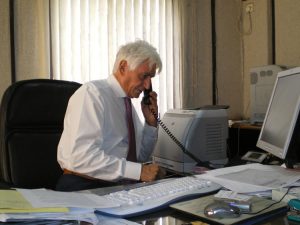
In the office
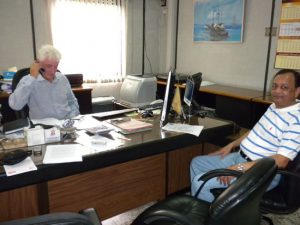
At his desk with Mr. S. P. Gupta of the Comet Group.
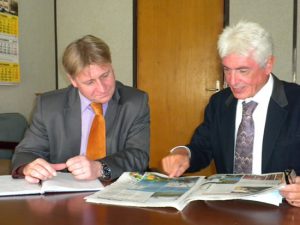
With Mr. Bogusz Ratajski, a manager of ESL in 2012
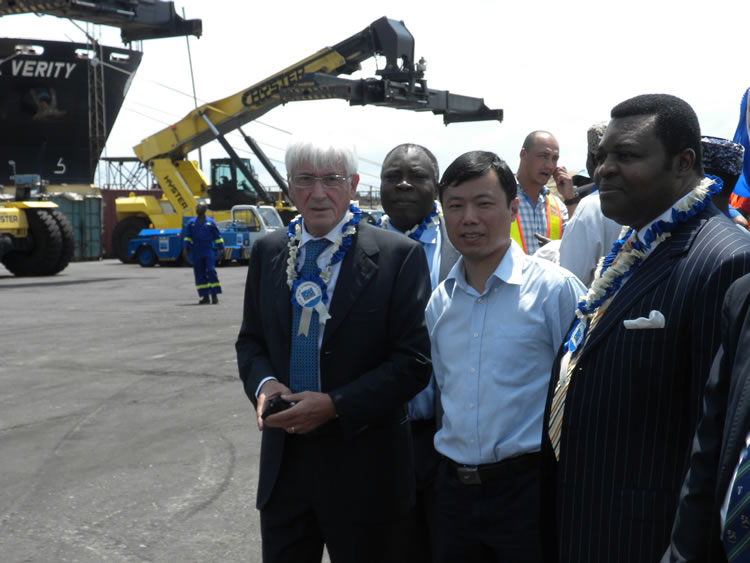
Mr. Carrodano (left) posing with the Chairman of the Comet Group, Chief Musa Danjuma (right) and the Representative of Cosco Shipping Line at a crane launch in Fivestar Logistics Terminal Lagos, June 2012. Mr. B. A. Adesina, Chief Accountant, is behind Mr. Carrodano.
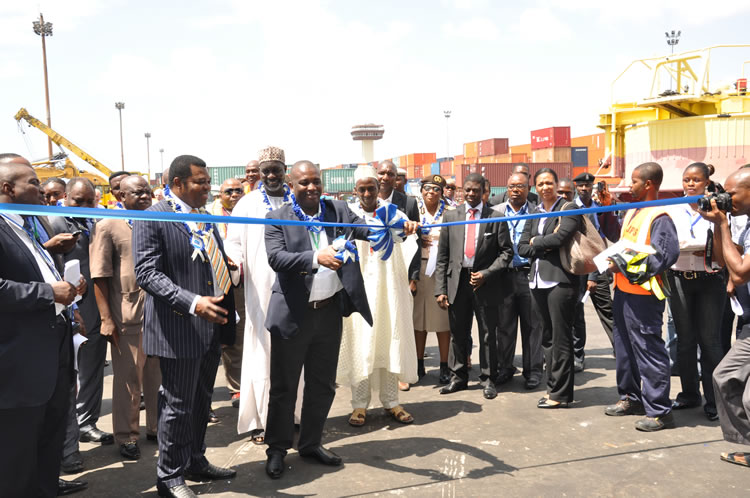
Cutting the tape at the crane launch

Guests and Fivestar Terminal staff at the crane launch
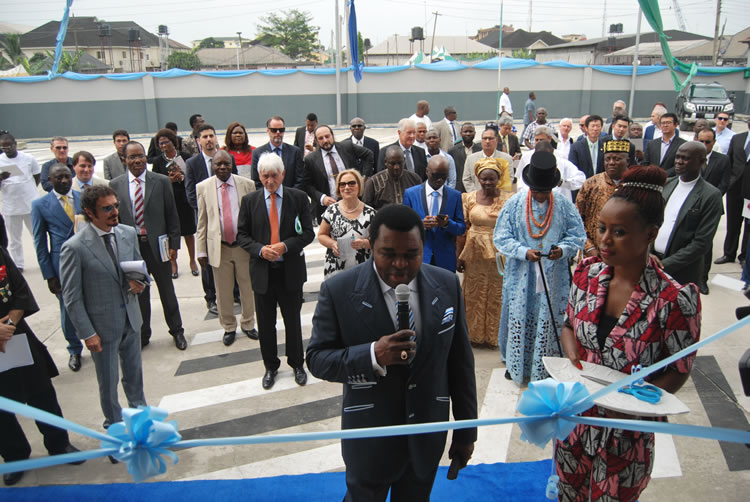
Comet Group Chairman, Chief Musa Danjuma, speaking at the opening of Plantgeria Ltd’s new Port Harcourt office, November 2015.
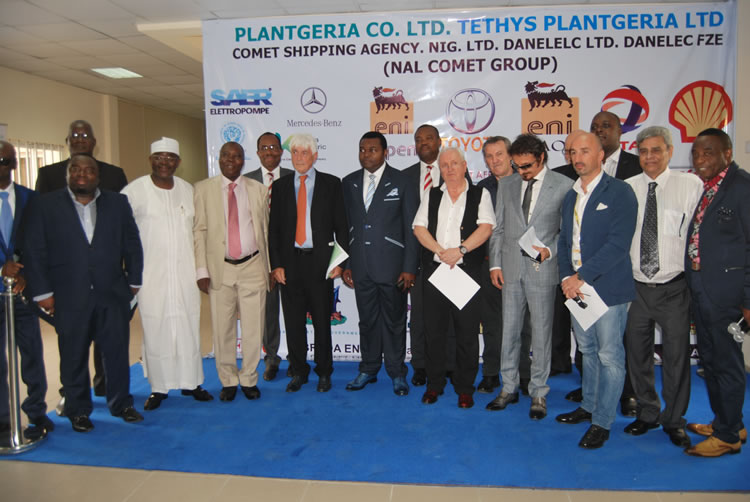
Group pix with staff and associates at the Port Harcourt new office opening.
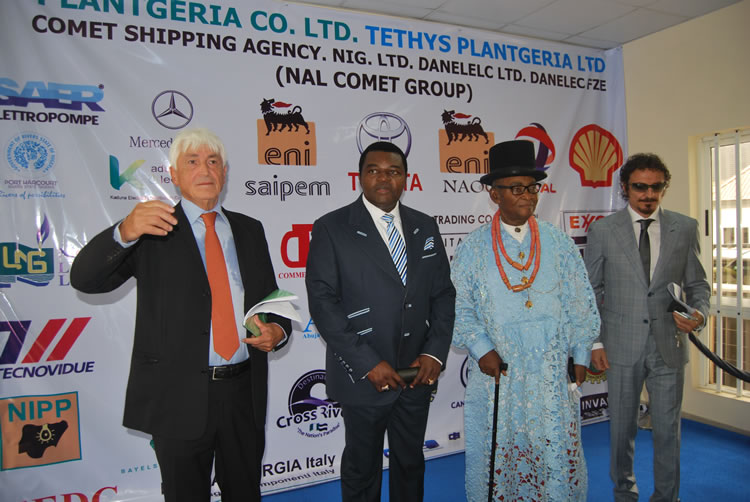
With Chief Danjuma, Eze G. B. Odum and late Marco Purgatorio, Plantgeria General Manager.
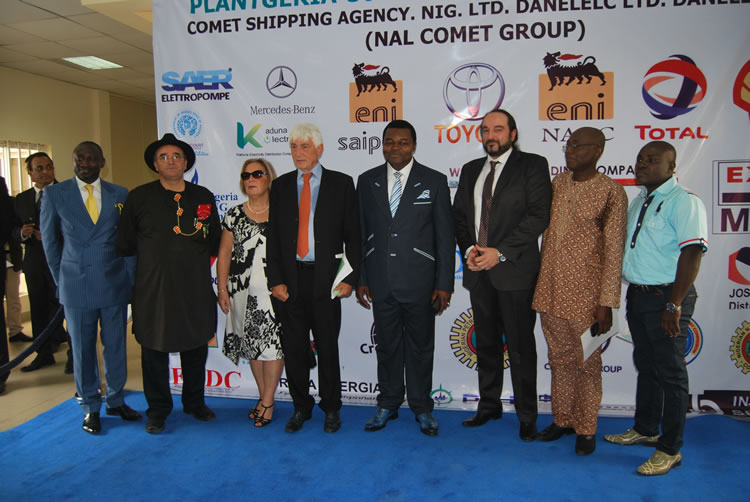
From left: Hon. Amos Magaji, Chief Masari Giandomenico, Mr. and Mrs. Carrodano, Chief Musa Danjuma, and others at the opening of Plantgeria Ltd’s new Port Harcourt office, November 2015.
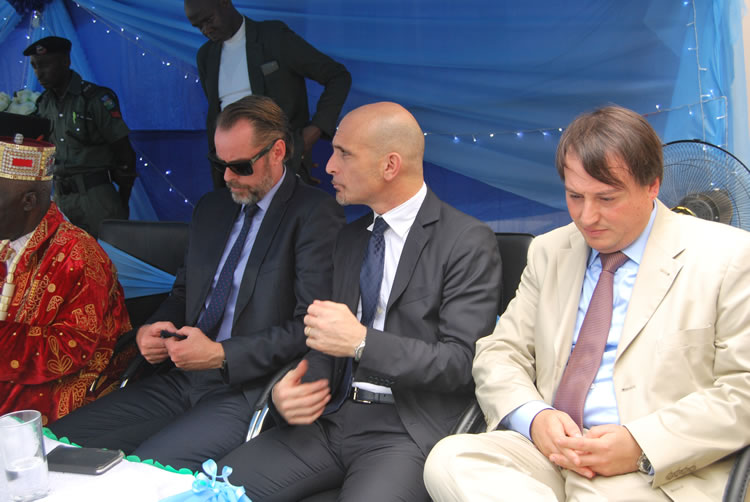
Staff members and Guests at the new office opening.

Staff members and Guests at the new office opening.
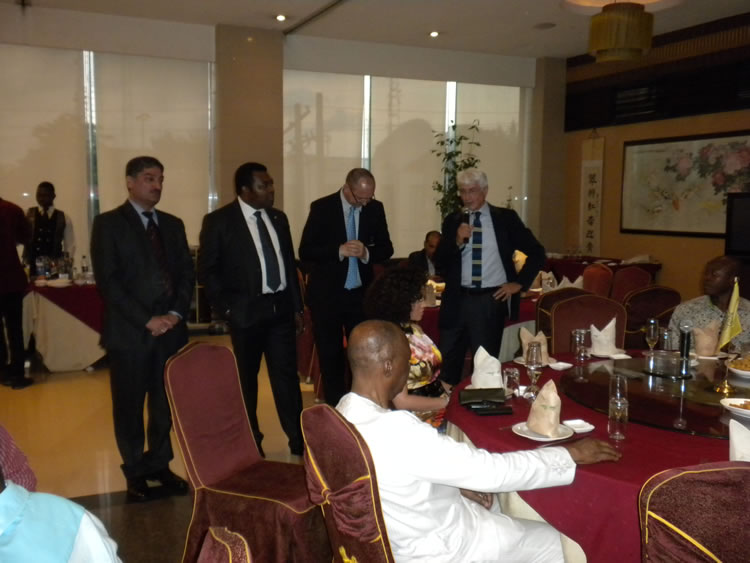
Speaking at an MSC party for trade partners in November 2012
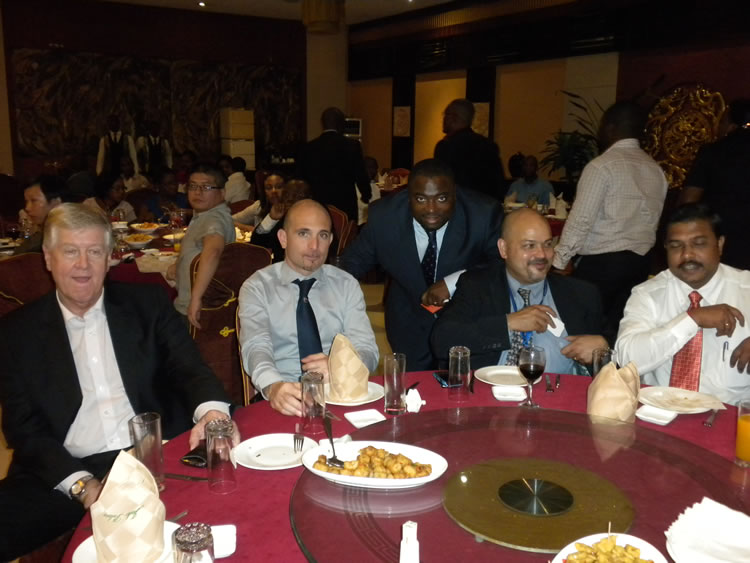
The Deputy MD, Joachim Theuerkauf, Admin Manager Filippo Vittorio and other Comet Group staff members at the MSC party for trade partners.
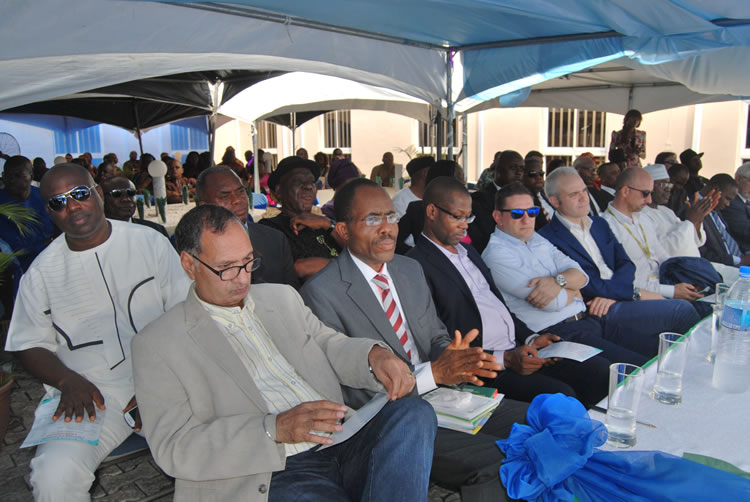
Staff members and Guests at the new office opening.
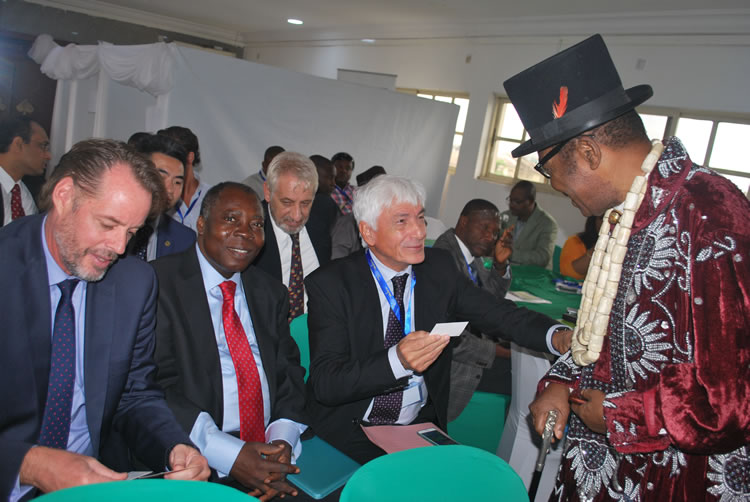
Chatting with Eze G B Odum at the 9th Nigerian Dredging Summit, Exhibition and Book Launch Port Harcourt, November 2015.
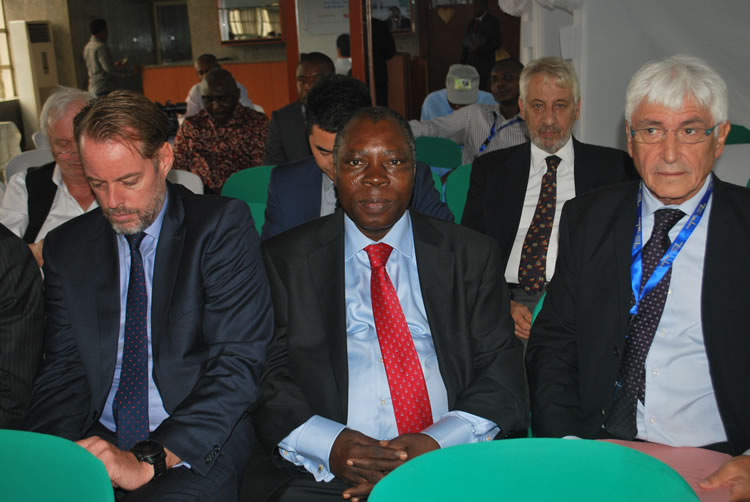
At the dredging summit and book launch Port Harcourt November 2015
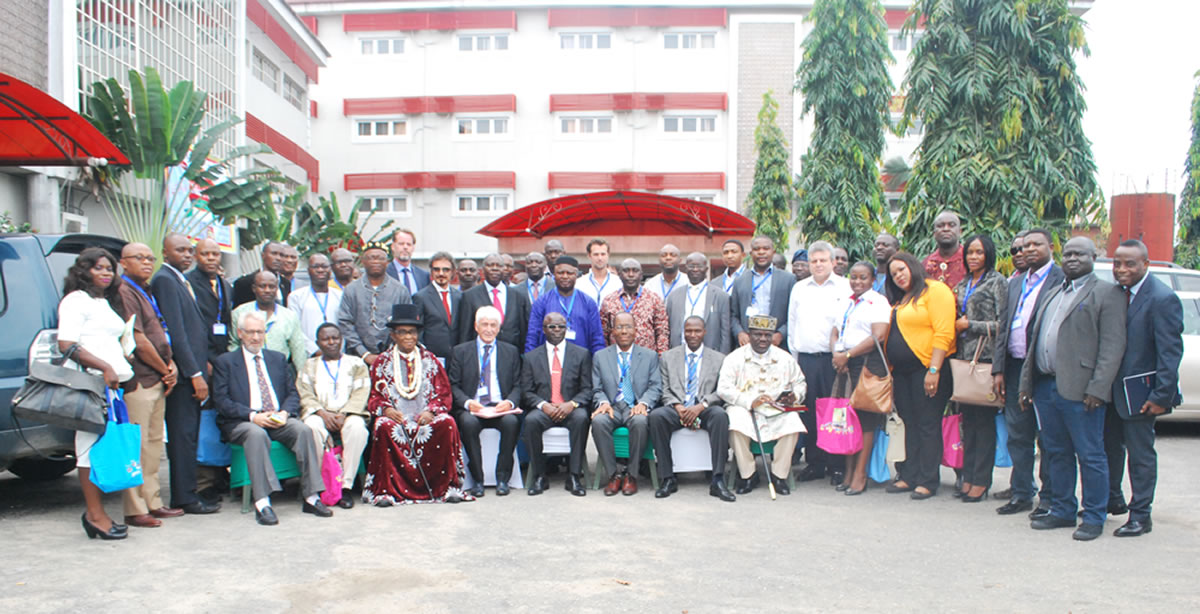
Group photograph of 9th Nigerian Dredging Summit, Exhibition and Book Launch, Beverly Hill Hotel, Port Harcourt, November 2015.
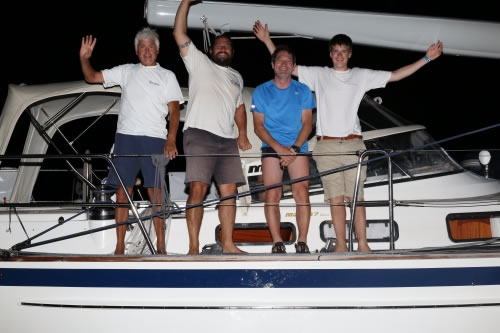
Carrodano (1st left) with the S/Y Roxana crew during the 2014 ARC+ Atlantic Rally for Cruisers. They arrived first in real-time – Cruising Division – Class B.
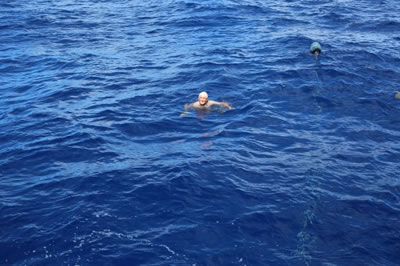
Swimming in the Atlantic during the 2014 ARC+ race

Promoting Comet Shipping at the Race
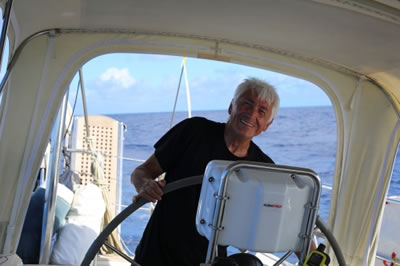
Steering Roxana
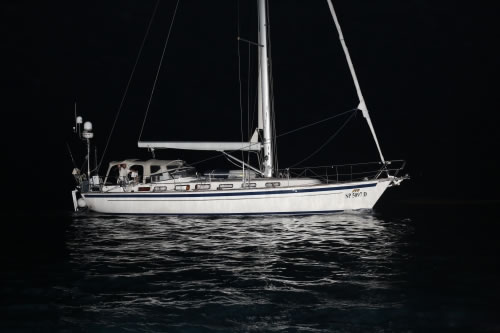
The S/Y Roxana
